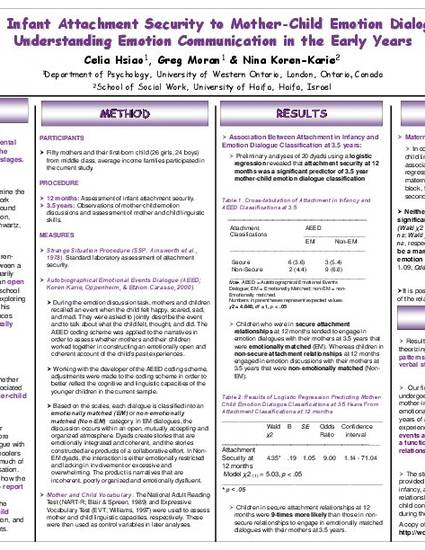
Researchers have become increasingly interested in understanding the developmental trajectory of attachment security from the preverbal infancy period to later verbal stages. One approach that has received much theoretical and empirical support is to examine the capacity of children and their mothers to work together in co-constructing narratives around personal and emotional events(Bretherton, 1990; Oppenheim, Koren-Karie & Sagi-Schwartz, 2007). It has been suggested (Oppenheim & Koren-Karie, 2009) that open communication between a secure dyad during infancy, involving primarily non-verbal signals, provides the basis for an open and fluid communication style in the preschool years. The secure child feels confident in exploring and sharing his thoughts and feelings with his mother because their earlier joint experiences have assured him that she will be emotionally available, supportive and accepting.
Available at: http://works.bepress.com/gregmoran/94/

Poster presentation at the International Conference on Infant Studies in Baltimore, MD in March 2010